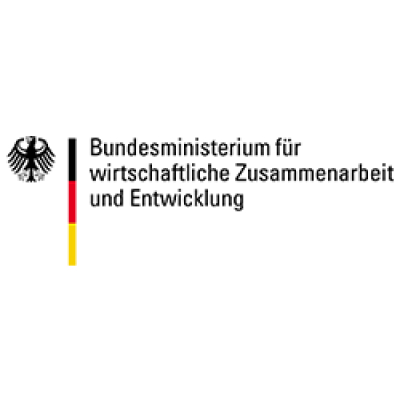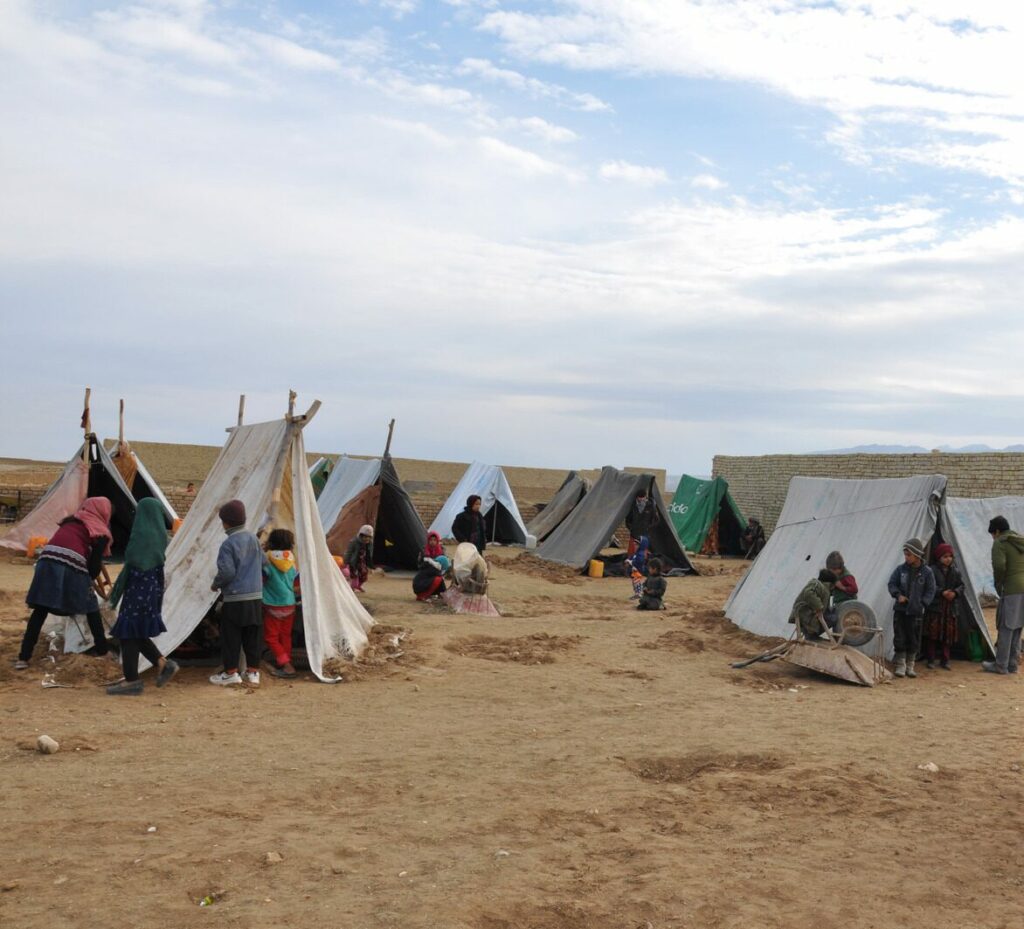
Heat donations – Winter emergency aid 2022
Completed
DONATE WARMTH – TOGETHER WE CAN ENSURE THAT 277 INTERNALLY DISPLACED AFGHAN FAMILIES GET THROUGH THE COLD SEASON SAFELY THIS WINTER!
You can continue to donate to this year’s winter emergency aid even after the first donation target has been reached! Due to the withdrawal of numerous NGOs from Afghanistan, acute humanitarian support is now more important than ever in the winter months.
We are in close contact with our local colleagues to find out where the donations are most urgently needed and will of course keep you up to date. Thank you so much for your support and trust!
In Afghanistan, winter is a time when large sections of the population have to fight for their survival: Temperatures as low as minus 30 degrees Celsius meet people whose only shelter is tents or makeshift huts without heating. Every year, the Afghan winters lead to deaths from frostbite and starvation. In the ongoing humanitarian disaster, the population is particularly vulnerable this year – and the first snow is already falling. If we take action now, we can provide a refugee camp in the north of the country with the most basic necessities. Are you in?
We are also feeling it in Germany: the days are getting shorter, temperatures are dropping and everyone is talking about heating costs and saving energy. Winter has also arrived in Afghanistan – even earlier than in previous years. The questions that families there have to ask themselves – in the midst of a catastrophic humanitarian crisis and political uncertainty – are existential: Can I feed and keep my family warm over the next few months? Will we survive the winter?
Together, we can now help 277 internally displaced families to answer these questions with “YES”: with Visions for Children, we are once again launching a humanitarian winter emergency aid program this year and supplying a refugee camp near Mazar-e-Sharif with food and heating packages. Each package consists of food such as 50kg flour, 10kg rice, 10l oil, 5kg pasta, 2kg tomato paste, 1kg tea and 3.5kg sugar as well as warm blankets and can cover the needs of a family of 5 for 2-3 months. Will we reach the donation target of €30,470 together?




Thanks to your generous donations for this year’s winter emergency aid, 279 internally displaced families in Qalinbafan Camp were reached with food parcels and blankets just a few days before the extreme cold snap hit the country.
THE REFUGEE CAMP
Over 3.5 million people are displaced in Afghanistan, many of them living in IDP (internally displaced persons) camps. They are fleeing natural disasters, such as the severe earthquake this year, conflicts or are looking for work. The conditions in the camps are catastrophic: people live in simple mud huts or tents without protection from the weather, access to sanitary facilities, health care or food is either non-existent or very difficult.
This year we have the opportunity to reach 277 families in Qalinbafan Camp, near the city of Mazar-e-Sharif in northern Afghanistan. The camp has been in existence for 10 years, but many more families have fled there in the last year – due to conflicts and fighting in other regions of the country. They have to walk into the city day after day in search of temporary work, yet the average income of $1.72 is well below the poverty line! In particular, the rapidly rising cost of food – due to the loss of international support for Afghanistan and global inflation – means that many of the families fear the onset of winter.
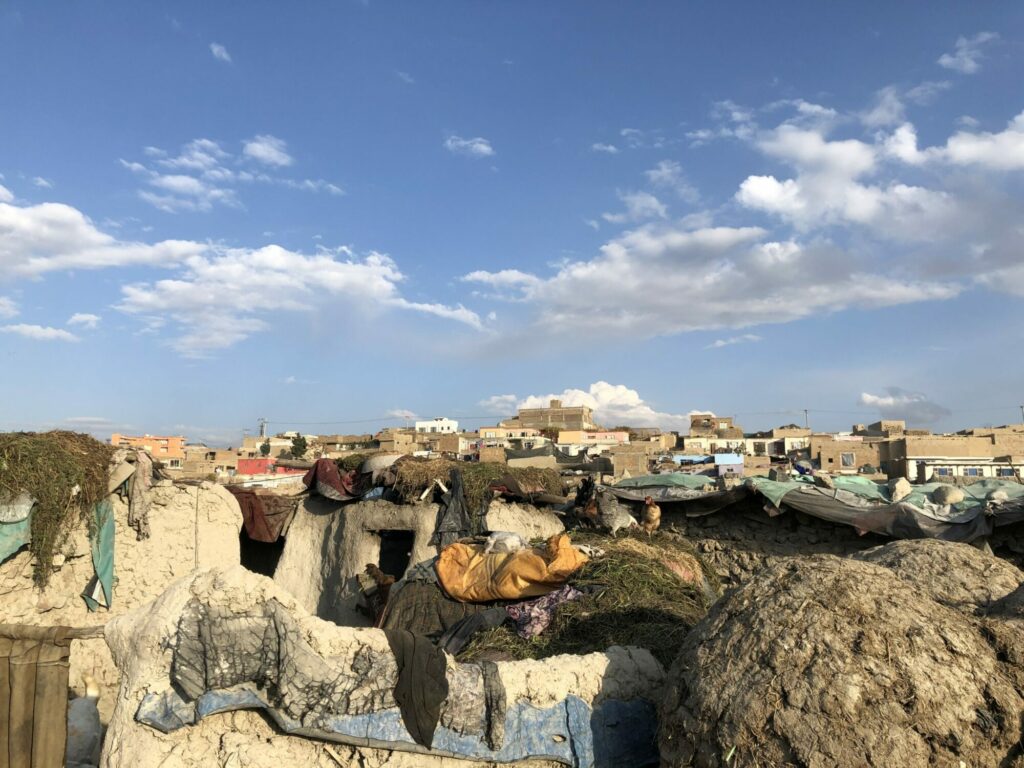
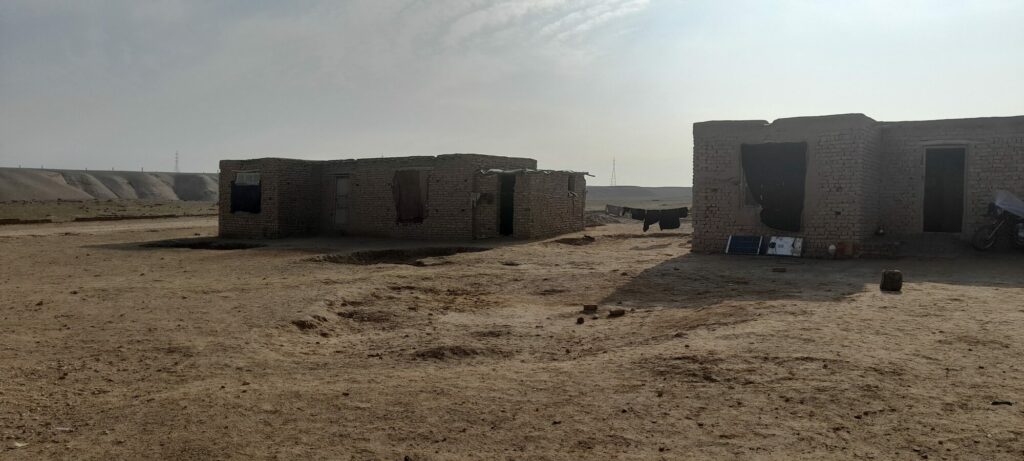
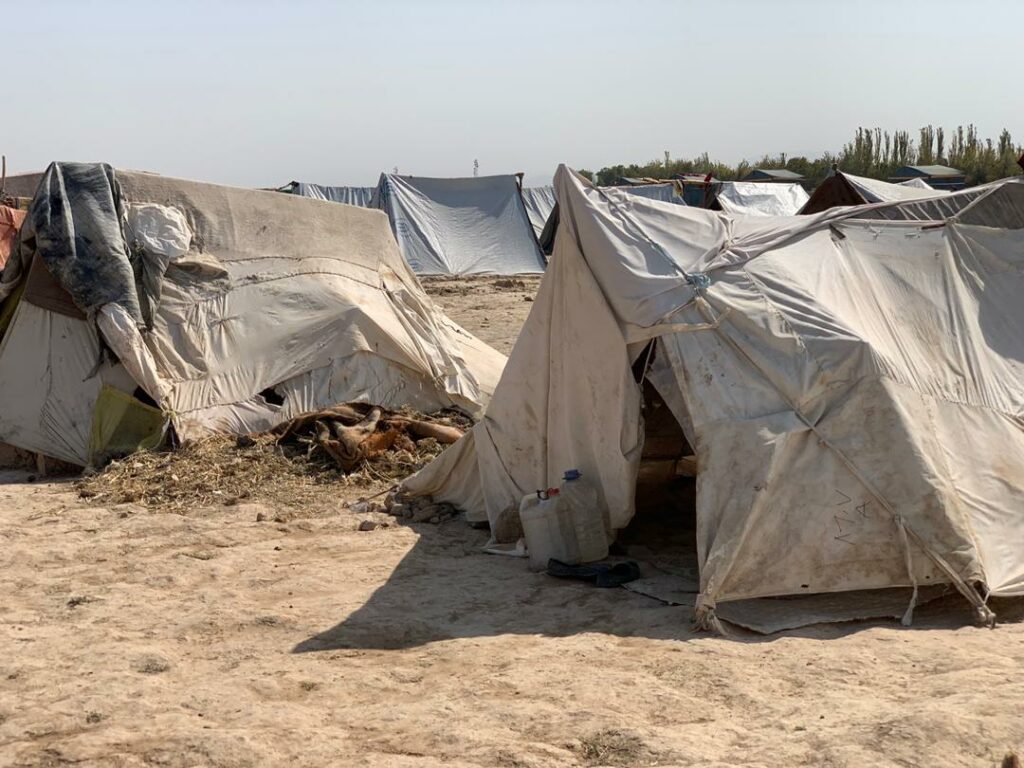
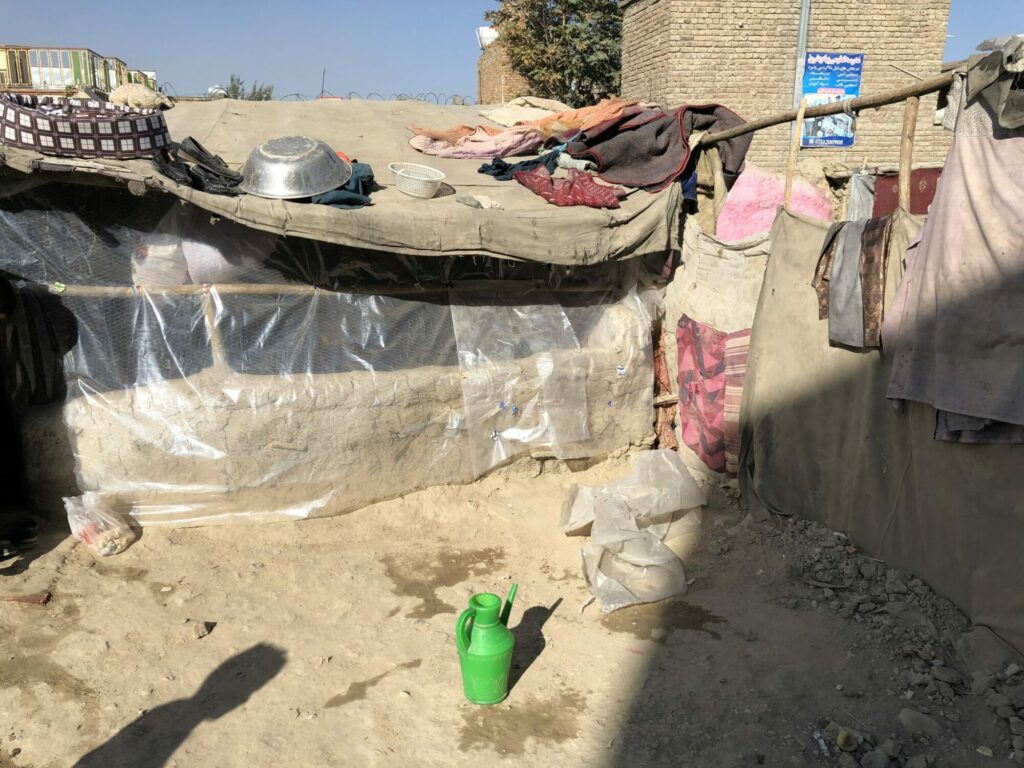
FOOD PACKAGES FOR THE WINTER
Afghanistan has an extreme climate – while droughts in the summer months make it difficult or even impossible to harvest crops, winters are icy cold – it can be as low as minus 30 degrees in the mountain regions, entire villages are cut off from the outside world by snowstorms and lose access to resources or health facilities. In refugee camps, where this infrastructure is often not available at all, families have to struggle to survive in winter.
With Visions for Children, we have already provided winter emergency aid for families in IDP camps in recent years – hundreds of families have already been reached. This year, our solidarity with the Afghan people is particularly important: after the Taliban took power last year, numerous NGOs withdrew from Afghanistan and international funds were frozen. As a result, more than half of the Afghan population is acutely dependent on humanitarian aid, 95% suffer from hunger!
We are carrying out this year’s emergency aid campaign with our local partner organization OASE, which is based in Mazar-e-Sharif.
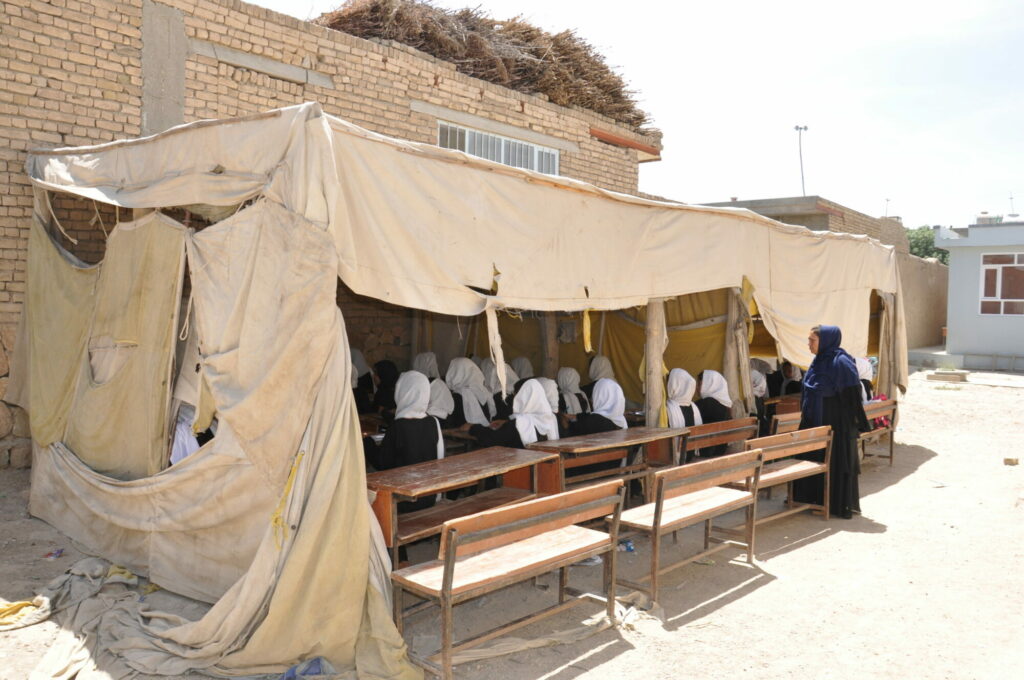
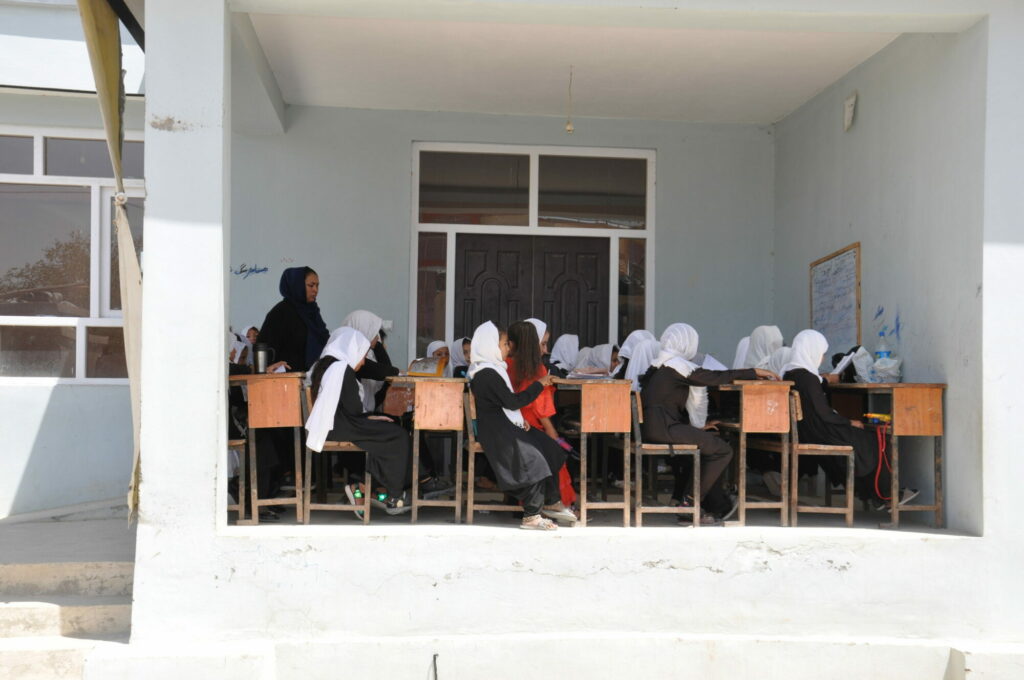
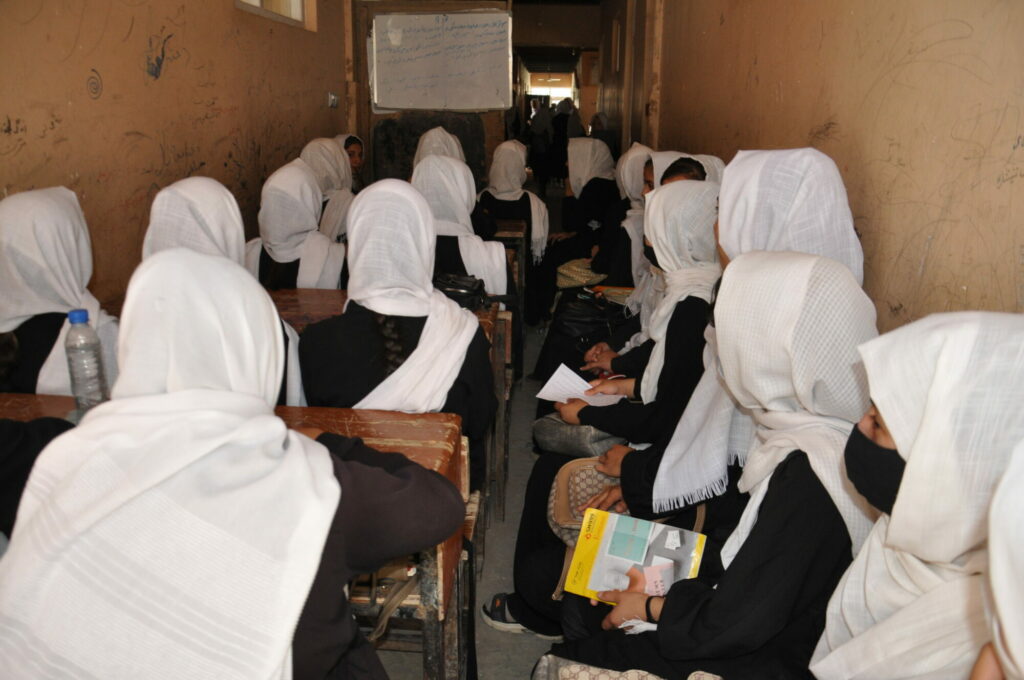
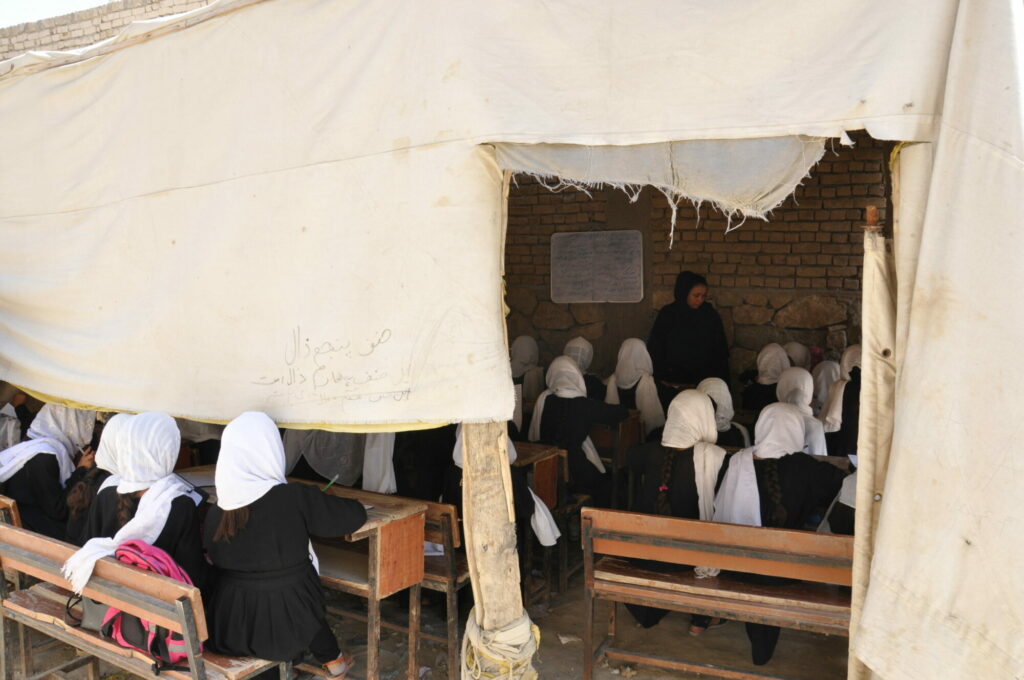
LEARNING IN THE WARM - IMPOSSIBLE AT THE BLOCK HAYE HAWAYEE SCHOOL
It is not only in IDP camps that Afghans are struggling with the winter: at the Block Haye Hawayee School in Mazar-e-Sharif, over 800 pupils have to move to the corridors or tents due to a lack of space. In cold winter temperatures, this leads to lessons being canceled or students having to learn in freezing temperatures: this worsens the quality of teaching, damages concentration, poses health risks and demotivates students.
It is therefore particularly important to start the new construction project with our partner OASE now! Having reached this year’s emergency aid donation target and provided for the families in the IDP camp, all further donations this year will therefore flow into the Block Haye Hawayee School. This means that you can contribute to the construction of a new building with 12 additional classrooms so that pupils can learn in safety and warmth in the future.
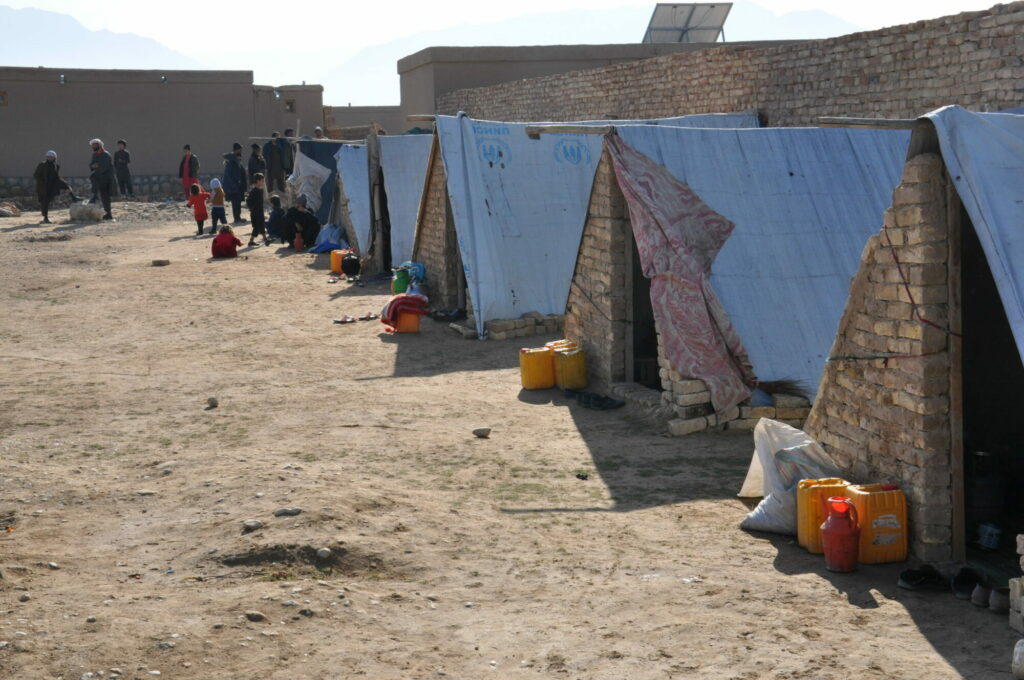
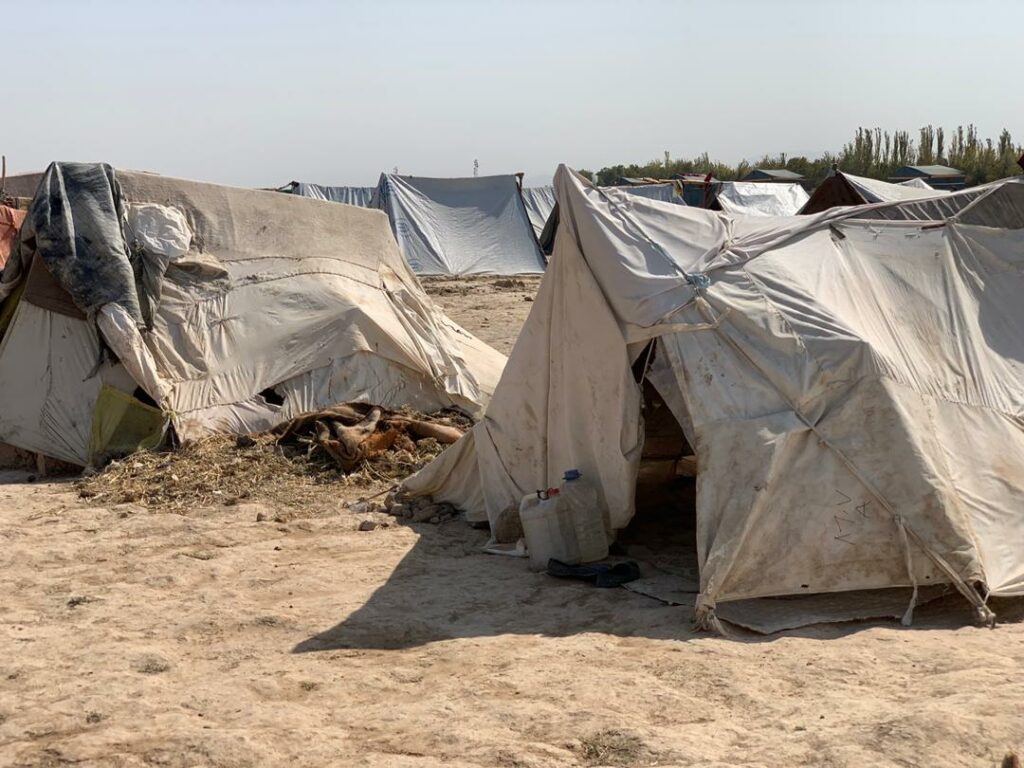
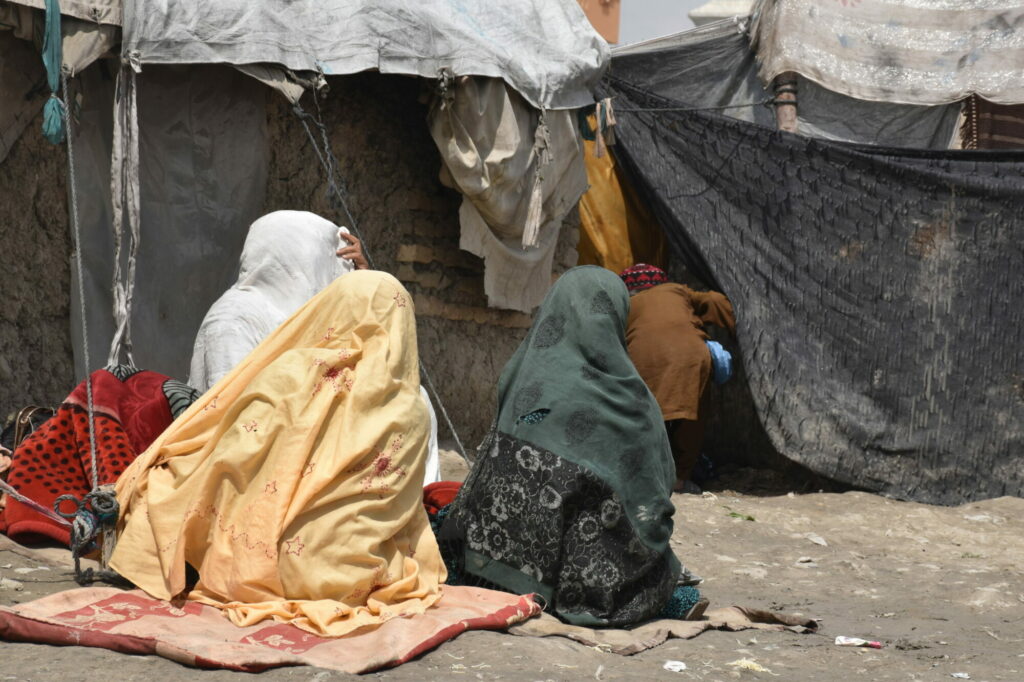
* The costs for a winter emergency aid package (€110) are made up as follows: around €83 goes directly to the refugee families in the form of food and a warm blanket, €17 goes to our local partner organization OASE for staff costs and the implementation of package distribution, €4.50 is for bank and international transaction fees and €6 for the coordination of emergency aid in Germany.
In previous years, we (the German and Afghan teams) have also implemented emergency aid completely on a voluntary basis in some cases. However, since the change of government in August 2021, the time and personnel required for research, preparation and implementation of humanitarian emergency aid has increased significantly. Public structures have partially collapsed and information is much more difficult to access.
The economic crisis in Afghanistan and the associated fluctuations in the price of goods as well as the more difficult transfer of funds are also contributing to an increase in costs. We therefore hope for your understanding that we will partially offset the expenses incurred. Thank you so much for your support, which enables us to implement the humanitarian emergency aid!
Other emergency relief projects

Emergency humanitarian aid for earthquake survivors in Turkey and Syria
Completed
Learn more
Ramadan Action 2021 – Hunger-free packages for internally displaced persons
Completed
Learn more
Ramadan Campaign 2019 – Hunger-free packages for Kabul and Herat
Completed
Learn more







